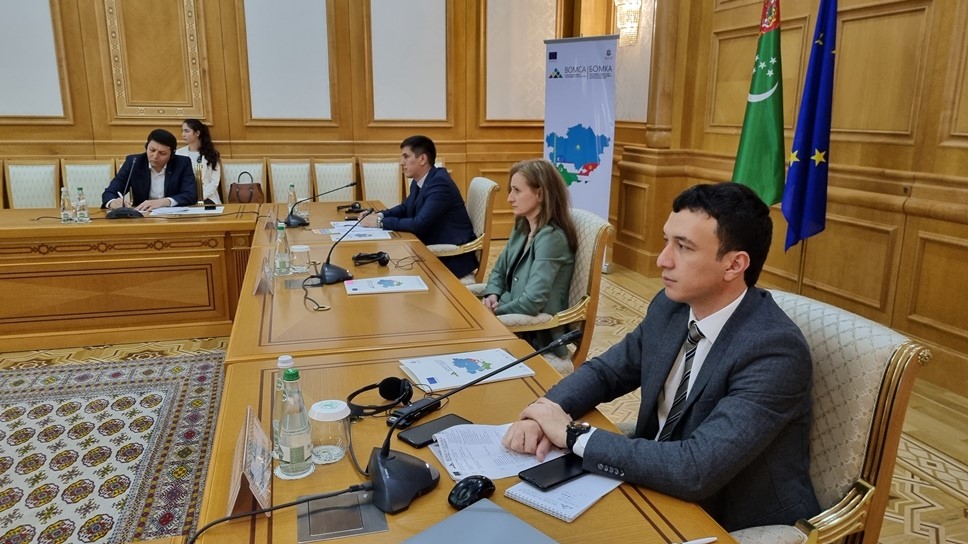Ashgabat, 15 April 2022
From 13-15 April of this year, the Border Management Programme in Central Asia (BOMCA), in partnership with the United Nations High Commissioner for Refugees Agency held an online workshop on international standards in identification, detention and return of irregular migrants. Representatives of the State Migration Service, State Frontier Service, Ministry of Internal Affairs and Ministry of National Security of Turkmenistan took part at the event. This is the third workshop of its kind conducted by the BOMCA Programme in the Central Asian region, following similar activities implemented this year in Kyrgyzstan and Uzbekistan.
 The workshop aimed at raising awareness about international legislation and legal instruments for efficient migration management, development of institutional approaches to the processes of identifying irregular migrants and their effective return, as well as improving the existing legal framework and law enforcement mechanisms for their return. The expert group was composed of the representatives of State Border Guard of Latvia, State Border Guard Service of Lithuania and the UN Refugee Agency. During the workshop, participants learned about the practices of the European Union countries in methods of identifying migrants and procedures of detention, accommodation, ensuring the rights of detained migrants and return, including the application of readmission agreements.
The workshop aimed at raising awareness about international legislation and legal instruments for efficient migration management, development of institutional approaches to the processes of identifying irregular migrants and their effective return, as well as improving the existing legal framework and law enforcement mechanisms for their return. The expert group was composed of the representatives of State Border Guard of Latvia, State Border Guard Service of Lithuania and the UN Refugee Agency. During the workshop, participants learned about the practices of the European Union countries in methods of identifying migrants and procedures of detention, accommodation, ensuring the rights of detained migrants and return, including the application of readmission agreements.
During the event, participants, supported by the experts, analysed national legislation in comparison to international standards and discussed their findings. Special attention was paid to cooperation between institutions responsible for migrant issues, as well as international and non-governmental organisations. They also learned about standards applicable to immigration detention centres (specialised centres) and the treatment safeguards to be provided to migrants detained there.
The Border Management Programme in Central Asia (BOMCA), funded by the European Union (EU), aims to enhance security, stability and sustainable growth in the region, while supporting cross-border cooperation and improving living conditions for people in the border areas of Central Asia. Since its implementation in 2003, BOMCA has played a leading role in strengthening cooperation between border control authorities through the application of the concept of integrated border management, as well as in bringing border control in line with international and EU standards.
BOMCA’s tenth phase, launched in April 2021, covers four areas: institutional development of border management agencies, improvement of detection capacities, trade facilitation, and improvement of cross-border cooperation. With a budget of EUR 21.65 million and an implementation period of 4.5 years, BOMCA 10 is the largest regional initiative in the field. It is implemented by a consortium of border management institutions of selected EU member states and the International Centre for Migration Policy Development led by the State Border Guard for the Republic of Latvia. /// nCa, 18 April 2022 (in cooperation with BOMCA)